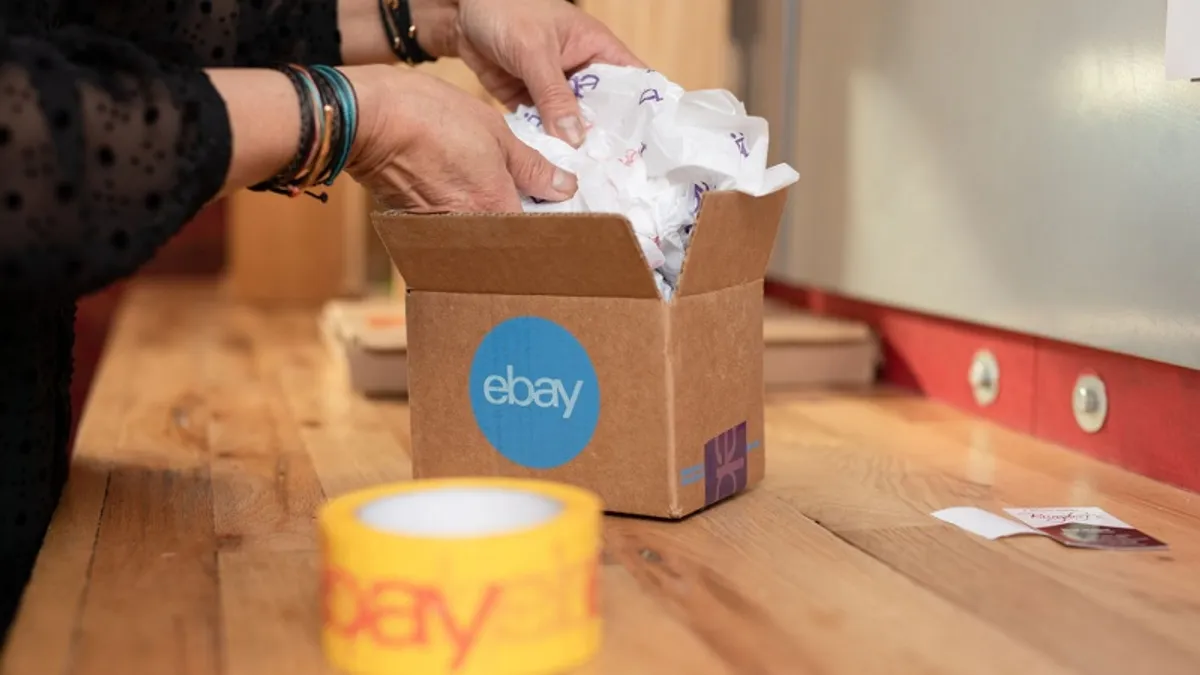Dive Brief:
-
Online marketplaces eBay, Etsy, Mercari, OfferUp and Poshmark on Tuesday launched "the Coalition to Protect America's Small Sellers" or the PASS Coalition, in opposition to a federal bill aimed at curtailing sales of fake and stolen goods through online marketplaces.
-
In an emailed press release, the coalition cites privacy concerns regarding some of the bill's disclsoure requirements. Poshmark spokesperson Amber McCasland also said it would be unfair to those selling used or secondhand items, though a copy of the proposed legislation covers only high-volume sellers selling "new or unused consumer products."
-
The bipartisan INFORM Act was introduced in the U.S. Senate last week. Many major retailers support it, including Walmart, whose marketplace is on the rise. Amazon, where more than 60% of goods sold flow through third-party sellers, has not returned requests for comment on either effort.
Dive Insight:
The members of this coalition have all touted their ability to keep counterfeit and stolen goods off their sites, although to many brands and consumers that has felt like a losing battle.
Brands in particular have become exasperated by the flood of counterfeits. "[W]e currently see limited — and frankly insufficient — efforts by many online platforms when it comes to verifying the identities of sellers and monitoring for counterfeits," AAFA President and CEO Steve Lamar said in a statement last week in support of the legislation.
Buy Safe America, a coalition of retailers that includes Walmart and Target, worked with lawmakers on the bill and has been in communication with PASS Coalition members as well, according to coalition spokesperson Michael Hanson. A press release Tuesday announcing the PASS Coalition doesn't accurately address items in the actual bill, he said.
"I was disappointed at the how the bill has been misconstrued," Hanson said by phone.
In the release, the marketplaces keep their criticisms vague and don't offer specific alternatives to the bill's provisions.
For example, the release slams the bill's "one-size-fits-all approach," yet the bill includes exceptions and alternatives, including for sellers who may be using their personal address or phone number for their marketplace business, Hanson said.
The bill is aimed at high-volume sellers that during "any continuous 12-month period during the previous 24 months, [have] entered into 200 or more discrete sales or transactions of new or unused consumer products resulting in the accumulation of an aggregate total of $5,000 or more in gross revenues."
It levies no taxes, yet a Mercari spokesperson complains in a statement that "proposed legislation places new tax burdens on these Americans, many of whom are simply reselling items that would otherwise end up in the landfill."
Multiple requests for clarification from eBay, Poshmark, Mercari and OfferUp were not returned.
















